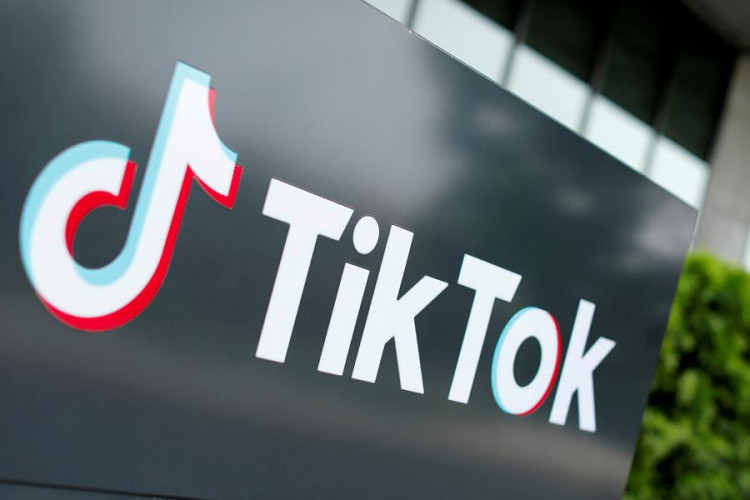TikTok is under intense legal scrutiny as 13 U.S. states and the District of Columbia filed lawsuits against the social media giant, accusing it of harming children and teens through addictive content and failing to protect its young users adequately. The series of lawsuits, filed on Tuesday, alleges that TikTok's design and algorithms intentionally exploit young people, promoting prolonged usage that has been linked to various mental health issues.
The lawsuits, which were initiated separately in states like New York, California, and the District of Columbia, significantly expand the legal challenges faced by TikTok in the United States. The accusations focus on the platform's role in fostering social media addiction and failing to safeguard young users from inappropriate content, a problem critics say is exacerbated by TikTok's business model that aims to maximize user engagement for advertising profits.
"TikTok cultivates social media addiction to boost corporate profits," California Attorney General Rob Bonta said in a statement. "TikTok intentionally targets children because they know kids do not yet have the defenses or capacity to create healthy boundaries around addictive content." This sentiment was echoed by New York Attorney General Letitia James, who noted that "young people are struggling with their mental health because of addictive social media platforms like TikTok."
The lawsuits accuse TikTok of misleading users about the effectiveness of its content moderation policies, alleging that the platform's claims of being safe for children are deceptive. Washington D.C. Attorney General Brian Schwalb described TikTok as a "digital nicotine" that aims to hook young users to their screens for as long as possible. He further criticized the app's lack of effective safeguards, calling its platform "dangerous by design."
TikTok, owned by the Chinese tech company ByteDance, has strongly denied the allegations, stating that it offers robust safety features for teens and parents. In a recent court filing, TikTok claimed that its efforts to protect children have been substantial and that it disagrees with the characterization of its app as harmful.
One of the most striking allegations in the lawsuits is that TikTok's live streaming and virtual currency features create a virtual ecosystem that operates like an unregulated marketplace, potentially exposing minors to exploitation. "TikTok's live streaming and virtual currency operate like a virtual strip club with no age restrictions," said Schwalb, highlighting concerns over the app's ability to facilitate inappropriate interactions between adults and underage users.
TikTok's introduction of features like TikTok LIVE and the virtual currency system called "Coins" has also come under fire. The lawsuits claim that these features encourage minors to engage in potentially risky behaviors by incentivizing live streaming with monetary rewards. Critics argue that TikTok's lax age verification measures allow minors to easily bypass restrictions and access adult content.
"Although LIVE, including both live streaming and Gifts, has a current minimum age requirement of 18 and older, TikTok knows its lax age verification measures incentivize U.S. minors to lie about their age to gain access," Schwalb's lawsuit claims. The lawsuits also allege that the platform's design facilitates a toxic environment where children can be targeted for sexual exploitation by other users.
This legal onslaught against TikTok is not the first. The platform has been under investigation for its impact on young users since March 2022, when eight states, including California and Massachusetts, launched a nationwide probe into TikTok's influence on youth mental health. Earlier this year, the U.S. Justice Department sued TikTok for allegedly failing to protect children's privacy on the app.
The lawsuits come at a pivotal time for TikTok and its parent company, ByteDance, as the app faces growing scrutiny over its ties to China and potential national security risks. A new federal law that could ban TikTok in the U.S. by January 19, 2025, unless ByteDance finds a non-Chinese buyer, is currently being challenged in court. TikTok has argued that the ban would violate the First Amendment rights of its American users.
Attorney General Schwalb has been vocal about the broader implications of TikTok's business model, criticizing the company for prioritizing profits over user safety. "In addition to prioritizing its profits over the health of children, TikTok's unregulated and illegal virtual economy allows the darkest, most depraved corners of society to prey upon vulnerable victims," Schwalb said. "The company knows what is happening and has chosen to ignore it."
More than half of U.S. teens aged 13 to 17 use TikTok, and the app has over a billion active users worldwide, amplifying concerns about its widespread influence on young minds. The lawsuits call for TikTok to be held accountable for the harm allegedly inflicted on its young audience and seek financial restitution for affected users, along with civil penalties.





